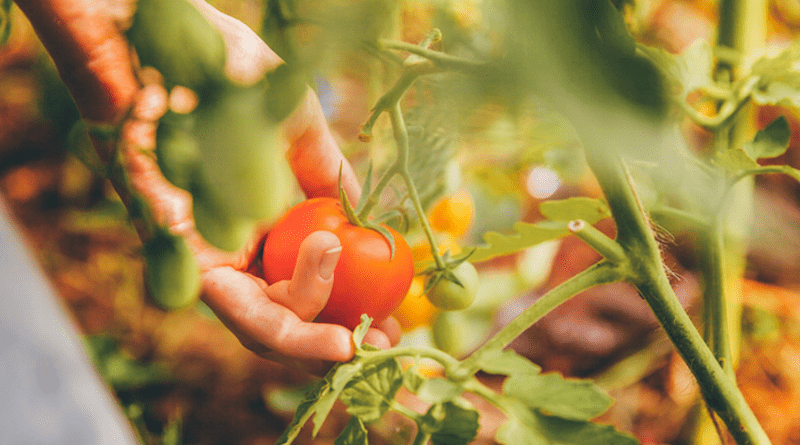Already Fewer Seeds And Fruits Under Mild Heat Conditions
“Better safe than sorry”: Plants anticipate potential heatwaves by already slowing down pollen development under mild heat conditions, concludes Stuart Jansma in his PhD research project. This “overreaction” on the part of plants has negative effects on fruit and seed harvests when the weather is warm. This can cause more serious problems when warm days increase in number due to climate change.
Climate change leads to an increase in average temperatures, resulting in more frequent, longer, and hotter heatwaves. We know that pollen, which is responsible for ensuring that flowers are fertilised and plants can therefore produce seeds and fruits, develops less well at high temperatures.
Earlier studies generally used heat shock, placing plants for a few hours in an environment reaching sometimes up to 50°C. But Stuart Jansma wanted to study the effect on plants of longer periods of mild heat, since this is more representative of our current conditions. Jansma placed tomato plants for a few days in an environment of up to 30°C to 34°C, 6 degrees higher than the ideal temperature for this plant, and investigated how the plants responded at gene and cell level.
Overreaction
His study shows that mild heat does not affect plants in quite the same way as heat shock. “Plants react slightly less strongly when exposed to mild temperatures. The interesting thing is that this reaction to mild heat is not really necessary for the plant’s survival. You could say that the plant is ‘overreacting’; it’s anticipating a scenario with even hotter days to follow,” explains Jansma.
In tomato plants, longer periods of mild heat turned out to affect the production of plant hormones, the conversion of sugars, and the folding of proteins. All these changes combine to reduce pollen development, in turn leading to lower percentages of living pollen. “The plant no longer focuses on reproduction, but arms itself against external stress factors.”
No fertilisation
Other researchers who did comparable research on rice plants observed that with every one-degree increase, flowers produced 10% less living pollen. “In principle, you don’t need that much pollen to fertilise a plant, but when the percentage of living pollen is low, the dead pollen block access to the pistil, thus preventing fertilisation.”
The plants’ overreaction has a negative impact on our food production chain. Jansma: “Every day that a plant ‘expects’ the warm weather to last for another week, it won’t produce any fruit. With climate change, warm days are growing in number, which only exacerbates the problem. To counter this effect, we could switch off the plants’ active reaction using genetic modification. However, this would require adjusting current European legislation.”

